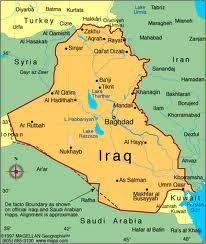ID :
333890
Tue, 07/01/2014 - 08:10
Auther :
Shortlink :
https://oananews.org//node/333890
The shortlink copeid
ISIL Insurgency And Iraqˈs Future

Tehran, July 1, IRNA -- The Islamic State of Iraq and the Levant (ISIL) is neither the beginning nor the end of Al-Qaedaˈs metamorphosis but a premature infant which was devised in the course of developments in Syria, delivered by Caesarean section with the help of the United States, Britain and France, and then taken care of in a incubator run by Iranˈs regional rivals namely Saudi Arabia, Qatar and Turkey.
Tuesday edition of the English language newspaper Iran Daily wrote that although the ISIL is a prematurely-born baby, its movements have had geopolitical consequences.
The terrorist group is a genetically-modified version of the Al-Qaeda. It first established a base for itself in Syria then extended its operations to Iraq where it seeks to set up its regional headquarters to act against Shia Muslims. This point of view suggests that the developments in Iraq are not short-term but ongoing and long-term with regional and global impacts.
To assess the situation on the ground and map out an effective strategy to address the threat posed by the ISIL, Iran should look under the hood of the developments which are aimed at disrupting the regional balance against the Islamic Republic.
The developments have been devised to pit regional players against each other and change the natural and logical process of politics and governance in the Middle East.
The recent developments in Iraq have various roots and cannot be easily analyzed. Undoubtedly, a look at the spillover of the conflict in Syria into Iraq can reveal key elements which contributed to the current situation. The puzzle can be figured out if the flames of war reach Lebanon. If this happens, then anti-Iran policies formulated by regional and ultra-regional players could be easily explained.
All partners involved and those who pull the strings of the ISIL have called for a diplomatic solution for the crisis in Iraq—a solution which seeks to give the lionˈs share of power to the rival groups.
Letˈs look at the US stance on cooperation with Iraq for quelling the ISIL insurgency in Iraq. Washington has said it is open to political discussions with Tehran, but not military cooperation. The United States has ˈno intentions, no plans to coordinate military activities with Iranˈ, a Pentagon spokesman said. US President Barack Obama has said there is a role for Iran over the Iraq crisis but only if it tries to support a unified Iraq, rather than tipping the scales in favor of its Shia allies.
ˈIran can play a constructive role if itˈs helping to send the same message to the Iraqi government that we are sending, which is that Iraq only holds together if itˈs inclusive and if the interests of Sunni, Shia and Kurd are all respected... If Iran is coming in simply as an armed force on behalf of the Shia then that probably worsens the situation and the prospect of a government formation that would actually be constructive over the long term.ˈ
The US has directly and indirectly contributed to the current crisis in Iraq and now sets conditions for Iran to play its role to solve it. This means that Iran is urged to leave Iraqˈs Shias alone and hand over its embattled neighbor to Saudi Arabia.
It seems that the ISIL insurgency has been masterminded by the US with the aim of creating an independent Kurdish state. Thatˈs why Iraqˈs Kurds are the most content players of the crisis, the ones who paved the ground for a full-scale war in Iraq in order to partition the country into three states run by Sunnis, Shias and Kurds./end





